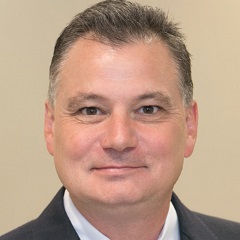Communication – The Doctor-Patient Relationship
 By Scott Kanagy, DO, chief medical officer, Premier Health Northern Region
By Scott Kanagy, DO, chief medical officer, Premier Health Northern Region
Effective doctor-patient communication is an essential piece of building a strong doctor-patient relationship. Good communication leads to strong relationships, which are key to providing high quality health care.
Many patient complaints and low satisfaction scores are the result of poor, ineffective communication that leads to a breakdown of the doctor-patient relationship. Communication and interpersonal skills enable doctors to gather information to make accurate diagnoses and give patients appropriate advice and care instructions. With these skills in play, doctors can interact with patients in a way that results in the best possible outcomes and high patient satisfaction.
The objective of any doctor-patient communication is to improve the patient’s health and medical care. Effective doctor-patient communication helps manage patients’ emotions and improves doctors’ ability to identify their needs and expectations. Patients who feel they have good communication with their doctor are better satisfied with their care, follow advice and instructions better, and adhere to prescribed medication instructions.
Good communication leads to better patient encounters, which results in better patient and doctor satisfaction. A satisfied patient is less likely to complain or initiate a malpractice complaint. Satisfied patients can also increase doctors’ job satisfaction, decrease work-related stress, and reduce burnout.
Attentive listening, empathy, and the use of open-ended questions are examples of good communication skills. There are many barriers to good communication, such as patient anxiety and fears, as well as the doctor’s burden of work and unrealistic patient expectations; however, what better way to reduce patient anxiety and fears, and decrease doctor workloads, than to communicate effectively? Good communication that answers the patient’s questions and gives well-understood instructions at the first encounter leads to less work or phone calls at a later time. Patients only process a small amount of the information a doctor says to them, so it is imperative that doctors have good communication skills to maximize the amount of information that is processed.
Remember, a patient will never care how much their doctor knows until they know how much they care.
Back to the November 2018 issue of Premier Pulse

